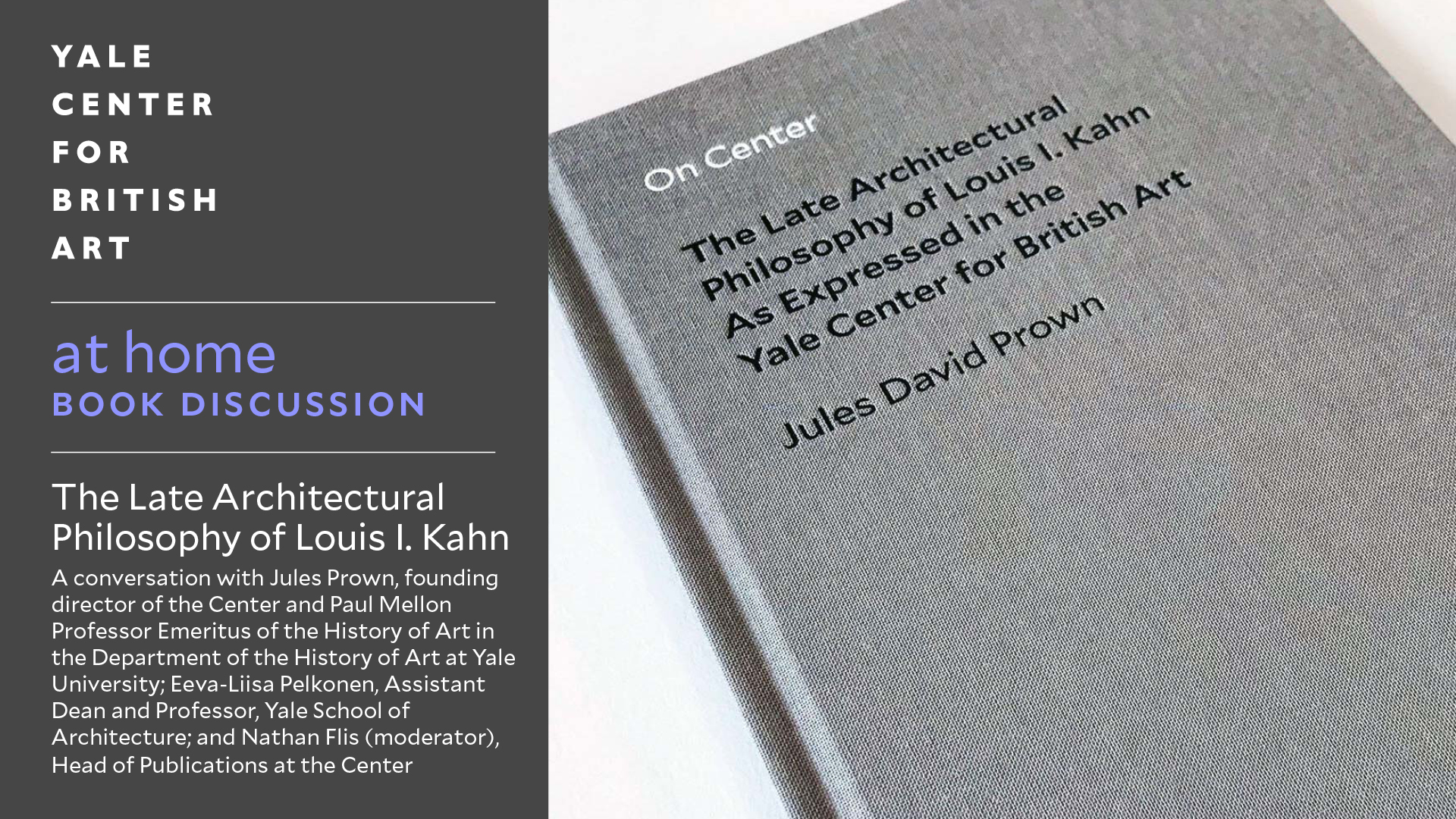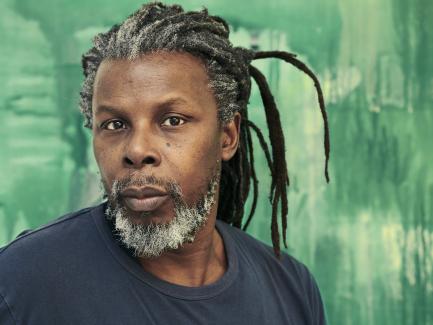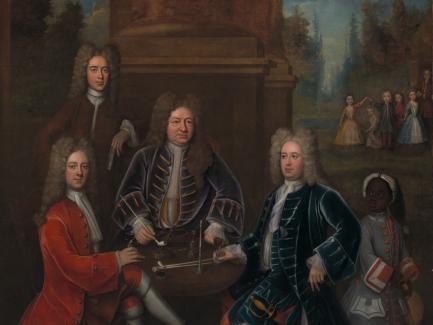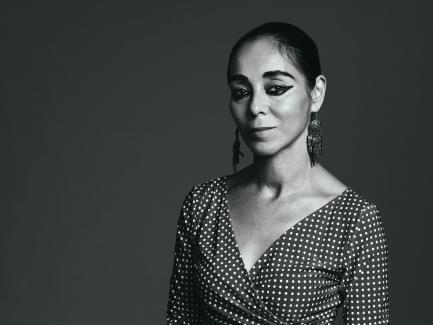at home: Book Discussion | The Late Architectural Philosophy of Louis I. Kahn
Conversation
May 7, 2021
A conversation with Jules Prown, founding director of the Center and Paul Mellon Professor Emeritus of the History of Art in the Department of the History of Art at Yale University; Eeva-Liisa Pelkonen, Assistant Dean and Professor, Yale School of Architecture; and Nathan Flis (moderator), Head of Publications at the Center
at home: Book Discussion
Join us for lively and inspiring conversations with some of today’s most notable scholars. Our at home: Book Discussion talks bring together authors, editors, and other collaborators to discuss their latest publications.
About On Center: The Late Architectural Philosophy of Louis I. Kahn as Expressed in the Yale Center for British Art
There have been several extensive studies of the many iconic works of renowned architect Louis I. Kahn (1901–1974), but few focus on the full expression of his architectural philosophy. Relying on direct quotations from Kahn himself, this book features the architect’s most essential ideas as they are articulated in Kahn’s impressive final work: the Yale Center for British Art in New Haven, Connecticut. Author Jules David Prown precisely demonstrates, with photographs and illustrations, how Kahn’s aesthetic concepts are manifested in the structure and attributes of the Center.
Prown, the first director of the Center, was instrumental in the selection of Kahn as the new building’s architect in 1969 and was alongside him throughout the processes of planning and construction until 1974, the year of Kahn’s death, three years before the Center’s completion. An earlier book coedited by Prown, Louis I. Kahn in Conversation: Interviews with John W. Cook and Heinrich Klotz: 1969–70 (Yale University Press, 2015), is based on a transcript of Kahn’s interview with two young architectural historians and is the source for the quotations that appear in this book. Prown is also the author of The Architecture of the Yale Center for British Art (Yale University Press, 2009).
This program is presented through the generosity of the Terry F. Green 1969 Fund for British Art and Culture.



